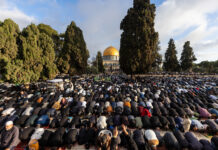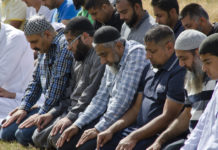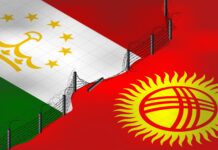The Austrian government has introduced a draft law to ban the hijab for girls under the age of 10 in primary schools whilst the kippa for Jewish boys will be permitted.
Austria’s right-wing establishment is planning to implement the law without the support of the opposition in what it describes as a “symbolic act” to protect it from “attacks” on the country’s mainstream culture.
However, the fact that Jewish kippa will not be banned has sparked controversy, with many rights groups accusing the government of religious discrimination and sexism against Islam and Muslim girls.
The ban, which will include private and state schools across the country means parents can be fined 440 Euros (£390) or face 14 days imprisonment for ignoring the ban.
The primary school hijab ban will come into effect next year if it passes through Parliament.
Austria’s Minister for Transport, Norbert Hofer, told journalists at a news conference on Wednesday that the government had sent the draft bill to opposition parties.
Hofer added that no negotiations would be made with the opposition ahead of the voting of the draft bill in the parliament, urging opposition parties to vote in support of it.
Subscribe to our newsletter and stay updated on the latest news and updates from around the Muslim world!
The main opposition, Social Democratic Party (SPO) and the New Austria and Liberal Forum (NEOS) said that the draft bill should be vigorously analysed.
The government was planning to implement the draft bill as a constitutional decree by taking a two-thirds majority of the parliament, but due to the opposition’s approach, the bill is now being planned to pass only by the votes of coalition partners.
After the 2017 elections, the centre-right Conservative Party (OVP) led by Chancellor Sebastian Kurz and the far-right Freedom Party (FPO) formed a coalition government.
A large number of non-governmental organisations, journalists and activists, particularly Austria’s Muslim community have opposed and criticised the draft law, saying it violates religious freedom and discrimination.
There are around 700,000 Muslims in Austria, including 300,000 of Turkish origin.
Amid public concern from the refugee crisis and international terrorism, Austria’s right-wing government has proposed several controversial policies, which include strict controls on mosques and Muslim organisations, and closing them down with little to no due process due to perceived “suspicious activity”.
Last October, Austria banned the niqab in all public places, including transport facilities.






















